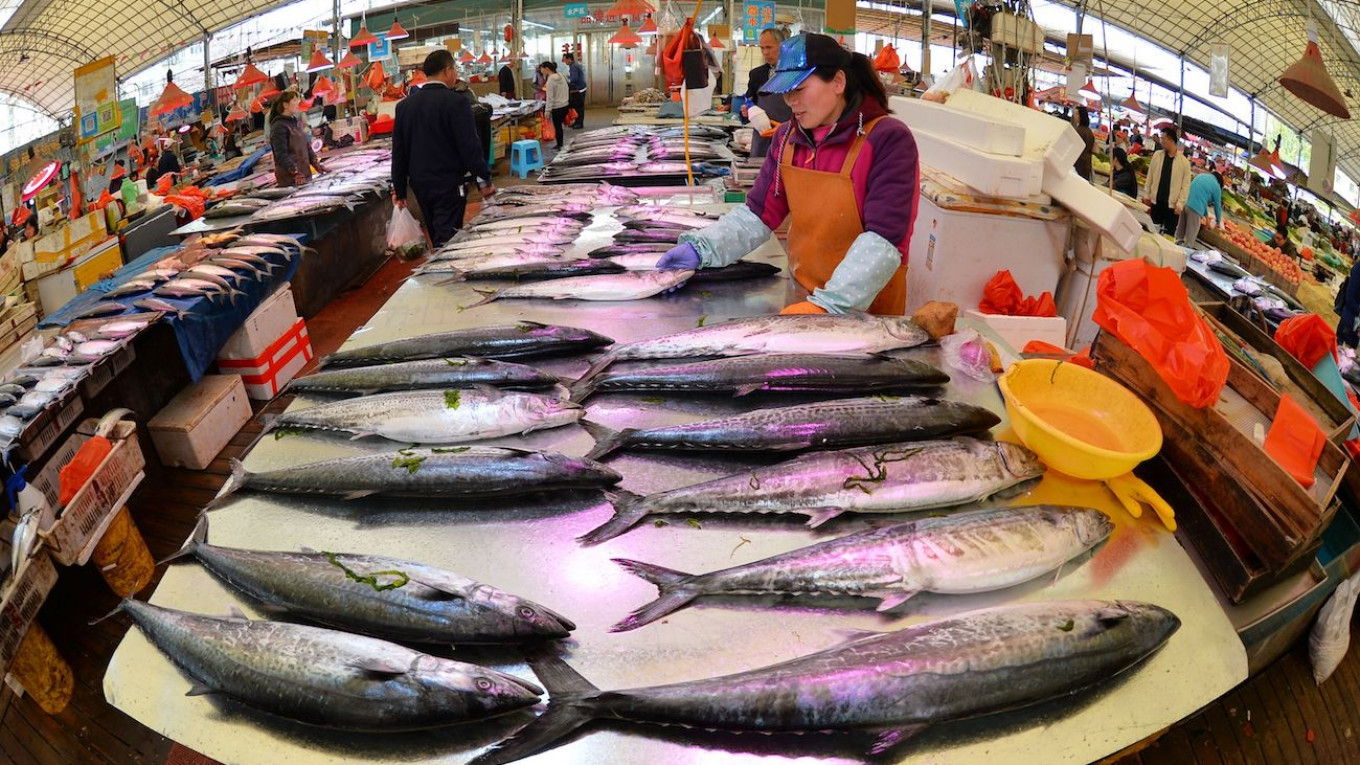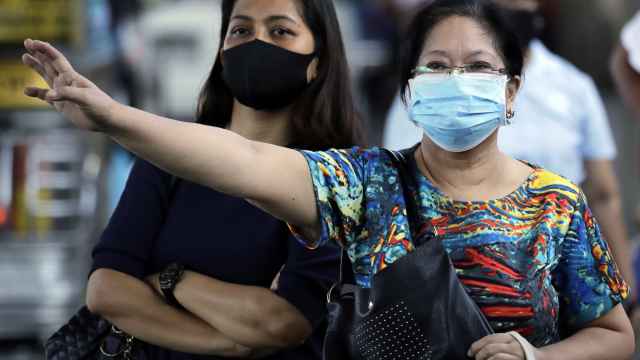Chinese authorities have restricted seafood imports from Russia after finding traces of the coronavirus on the seafood’s outer packaging, the Vedomosti business daily reported Thursday.
China, the destination for 60% of Russia’s seafood exports, has so far placed restrictions on four Russian companies, Russian Fishery Industries Association president German Zverev told Vedomosti.
China previously sent several warnings to Russia’s phytosanitary watchdog Rosselkhoznadzor, including after two Chinese stevedores contracted the virus, the watchdog’s press service quoted its deputy head Konstantin Savenkov as saying.
While no traces of the coronavirus were found during the initial screening of Russian vessels, Chinese authorities linked the infections to packages that arrived from Russia, Savenkov was quoted as saying.
Russian fish exporters view China’s actions as part of an “undeclared trade war” rather than a safety precaution, Zverev said, as they come amid increasing attempts by Chinese traders to lower the price they pay for Russian seafood.
The price of Russian pollock exports has already fallen by 20% compared to 2019, Vedomosti quoted him as saying. If current restrictions remain in place through the pollock fishing season that begins in January, the Russian fish industry could sustain additional losses of up to $100 million, Zverev warned.
According to Rosselkhoznadzor, Russian fish producers will likely be able to resume normal exports after implementing additional steps for testing their packaging for the coronavirus. Zverev told Vedomosti that Russian authorities should pressure China to introduce more transparent testing-on-arrival mechanisms and allow Russian companies to dispute test results.
Last week, Chinese state-run media reported that coronavirus traces had been found on packages of frozen squid from Russia, though all individuals who came into contact with the packaging tested negative for Covid-19.
Russia confirmed 9,412 new coronavirus cases Friday, the highest number in four months.
The World Health Organization maintains that the coronavirus cannot multiply on food packaging surfaces and does not encourage disinfecting packaging.
A Message from The Moscow Times:
Dear readers,
We are facing unprecedented challenges. Russia's Prosecutor General's Office has designated The Moscow Times as an "undesirable" organization, criminalizing our work and putting our staff at risk of prosecution. This follows our earlier unjust labeling as a "foreign agent."
These actions are direct attempts to silence independent journalism in Russia. The authorities claim our work "discredits the decisions of the Russian leadership." We see things differently: we strive to provide accurate, unbiased reporting on Russia.
We, the journalists of The Moscow Times, refuse to be silenced. But to continue our work, we need your help.
Your support, no matter how small, makes a world of difference. If you can, please support us monthly starting from just $2. It's quick to set up, and every contribution makes a significant impact.
By supporting The Moscow Times, you're defending open, independent journalism in the face of repression. Thank you for standing with us.
Remind me later.






